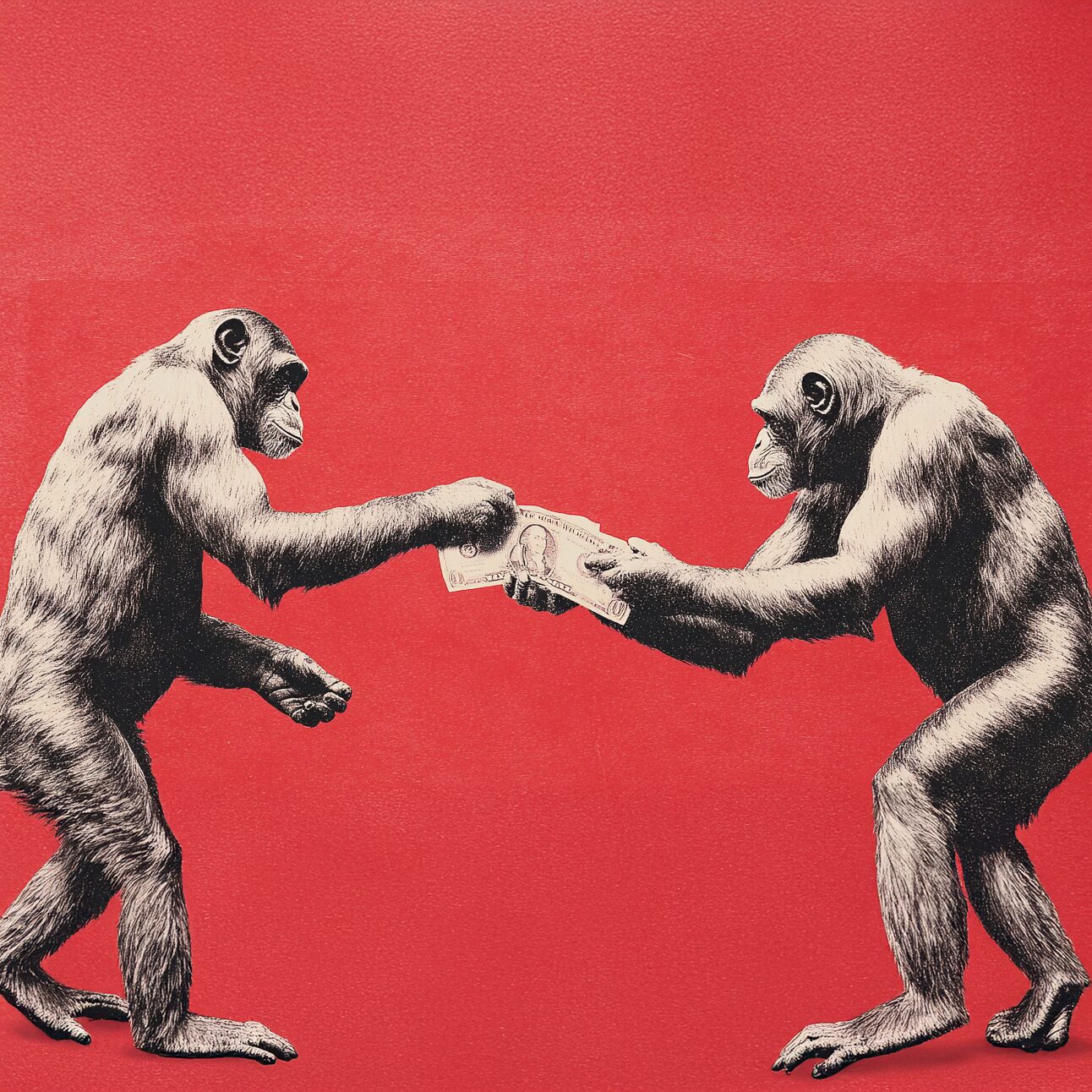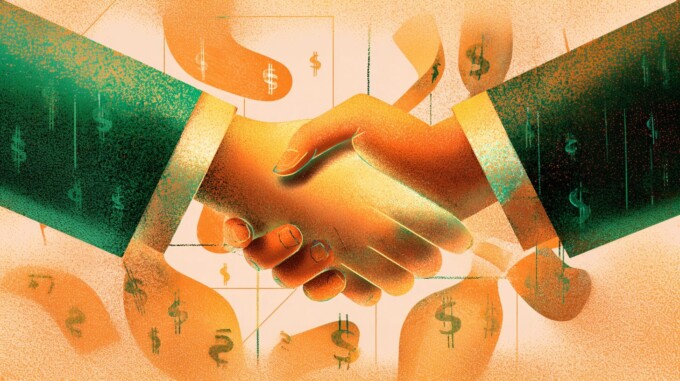Summary: Many Americans instinctively support trade protectionism, often citing job losses, national decline, or loyalty to domestic workers. Those views find little support in economic data. They stem from deep-rooted psychological instincts—such as zero-sum thinking and a bias toward tangible labor. Understanding these evolutionary roots can help explain why bad economics often makes for popular politics.
The American right is obsessed with bringing back manufacturing jobs. Long before Donald Trump’s “Liberation Day” tariffs, free trade was blamed for everything from kids not playing outside anymore to national weakness and the United States being at a strategic disadvantage relative to China.
These perspectives, however, find little support in empirical data, and the ethical arguments underlying protectionism range from underdeveloped to downright odd. The fact that poor arguments against trade persist despite common sense and the overwhelming consensus of economists is a sign that we need to understand support for protecting manufacturing jobs against foreign competition as being rooted in evolutionary psychology. Protectionism is a preference that can be found where two very strong emotions intersect: hostility toward outgroups and an aesthetic preference for work that involves producing tangible objects.
Chris Caldwell has recently criticized trade on the grounds that the idea of the “country as a whole” is a myth. “The same policy could be perceived by one group as a windfall and by the other as a catastrophe. Trade made you the ally of certain foreigners and the rival of certain fellow Americans.” Similarly, in Conservatism: A Rediscovery, Yoram Hazony argues that free trade leaves workers feeling betrayed by leaders in government and business, thus “bursting the bonds of mutual loyalty.”
These arguments are difficult to justify upon reflection. With regard to Caldwell’s view that trade puts you on the same team as foreigners against Americans, one may ask: Doesn’t restricting trade do the same? If I want to buy a widget from a Chinese manufacturer at a cheaper price, aren’t the protectionists within my own country thwarting me in that goal if they prevent me from doing so? Caldwell’s perspective treats a world without cross-border trade as the natural default, with the movement of goods across borders “creating” a situation in which Americans are pitted against one another. In fact, a world without trade can come about only through heavy-handed government action, with the state intervening on the side of some Americans against others.
Hazony’s argument likewise presents a strange view of ethics. When members of a group sacrifice, it’s usually to help the whole. For instance, a soldier might die in war to keep his nation from being conquered. The “moral” argument against trade flips this idea on its head. The majority, and the well-being of the whole, must be sacrificed for the sake of the few.
Even if we accept the desirability of redistribution, this argument could make sense only if the pro-trade position involved a transfer from the poor to the rich. Those who have a lot might sacrifice to help the poorest among us. The problem with this view is that tariffs function as a regressive tax, especially on goods that make up a larger share of low-income budgets, such as clothing, food, and appliances. A 25 percent duty on imported washing machines raises prices for everyone, but the cost is a greater burden for a minimum-wage household than for a wealthy one. A study of Trump’s 2018 tariffs found an annual cost of $419 per household. High earners might not notice such a cost, but it takes a big chunk out of the disposable income of the working poor.
While protectionists focus on jobs their policies save, they ignore the much larger harms inflicted on the rest of society. Steel tariffs imposed by the Bush administration in 2002–2003 were found to have cost 168,000 jobs in industries that have steel as inputs, more than the total number of jobs in the entire steel industry. The first Trump administration’s washing machine tariffs created 1,800 jobs, at the cost to consumers of $820,000 for each job.
None of that should be surprising given the nature of the American economy. Protectionists seem to imagine that manufacturing makes up a massive portion of the national workforce. Yet only 8 percent of the nonfarm labor force works in manufacturing, half of what it was in the early 1990s. Even if you focus on the less educated, such jobs do not represent anywhere near a majority. As of 2015, only 16 percent of men without a bachelor’s degree worked in manufacturing, down from 37 percent in 1960. Thus, even if you ignore women and everyone in the country who completed higher education, most people do not actually have the kinds of jobs that opponents of free trade seek to protect and cultivate.
On what basis, then, should national policy be geared toward helping a very small minority of the public, and even a minority of the working class, at the expense of everyone else? What is odd about antitrade conservatives is that they rarely focus on other sacrifices the rich could make on behalf of the poor. The most straightforward way for them to do so would be to call for higher taxes on the wealthy and more redistribution. That way, instead of taxing everyone (with a disproportionate effect on the poor) to help a small minority of the population, one could focus on those who can most afford to pay. This is not to argue for redistribution, but rather to say that if that is your goal, putting restrictions on trade is not the way to achieve it.
Given what the empirical data overwhelmingly show about the effects of tariffs, and given the existing structure of the American economy, there must be a psychological reason for the strong attachment many have to protectionist policies. Evolutionary psychology provides an answer. First of all, we evolved in a world of zero-sum competition between individuals and groups. Without developed market economies, outsiders could gain something from your tribe only at your tribe’s expense.
President Trump makes this view explicit when he says that a trade deficit means we are “losing” money to foreign countries. This, of course, makes no sense. When I buy something from a store, it is because both parties decided it was in their interest to engage in a voluntary transaction. It’s telling that conservative intellectuals, and Americans more generally, rarely have opinions nearly this strong in economic domains outside of trade and immigration. Shouldn’t every situation where there’s a buyer and a seller be some sort of scam, according to Trump’s worldview? The fact that almost nobody understands economics this way indicates that the presence of foreigners in an interaction changes the nature of how individuals perceive it.
In addition to zero-sum thinking, another aspect of evolutionary psychology that is relevant here is how we perceive the nature of work. As alluded to earlier, protectionists tend to value manufacturing jobs higher than other forms of work, while also implicitly overestimating the extent to which our economy depends on them. But why, exactly, does someone going from working in a factory to becoming a hairdresser or driving an Uber seem like a loss, even if their new job might pay more? Why do protectionists in America seem envious of nations like China and Vietnam, which have a higher percentage of their workforces involved in manufacturing but are much poorer than we are?
Once again, the answer must be found in the distant past and how it shaped our contemporary brains. As hunter-gatherers and later farmers, we could see that someone who erected a dwelling or made a fishing spear was clearly contributing to society. Manufacturing workers are the modern equivalents, producing goods that individuals can see and touch.
The rise of the service economy is a recent phenomenon. For most of human history, nearly all labor was tied to survival—hunting, gathering, farming, or crafting tools. Even through the early industrial period, most workers made things. But in the past century, advanced economies have shifted dramatically. Today, the vast majority of workers in countries like the United States are employed in services, including sectors such as health care, education, finance, hospitality, and software development. These roles often involve abstract forms of productivity, making their social value harder for most people to grasp.
Note that like manufacturing, agriculture is often romanticized and protected from foreign competition, likely because it has premodern equivalents. Just like factories, farms evoke images of hard physical labor, sustenance, and independence. To find such work aesthetically appealing is deeply wired into our collective psychology. In truth, however, the structure of modern work has moved on. Manufacturing and farming make up only a fraction of the economies of advanced nations.
Most Americans today do not make things. They provide care, solve problems, create knowledge, or facilitate transactions. These jobs are no less real or valuable than factory work, but they lack the visceral, visible outputs our minds were shaped to recognize as valuable. The nostalgia for manufacturing, then, is rooted not in economic logic or ethical clarity, but in an instinctive bias toward forms of labor that resemble those in our ancestral past.
Of course feelings matter in politics. Nonetheless, it is important to understand when we are being motivated by psychological illusions. One might argue that the path to happiness is to indulge in our natural instincts and have a closed economy in which more people make tangible things, even if it causes our living standards to collapse. Yet protectionists practically never make a case like this—and for good reason. Once you understand the nature of these biases and how irrational they are, the case against trade falls apart.
This is why protectionists instead argue that their preferred policies will make their country better off economically, or at the very least transfer wealth from the rich to the poor. The proper response here is that their assumptions are simply not true. Instead of throwing up barriers to trade or trying to resurrect a long-gone employment landscape, we should ask how best to support workers as they are, not as we imagine them to be. That means supporting things like flexible labor markets, higher-quality training and education, and the removal of arbitrary barriers to making a living such as occupational licensing regimes.





